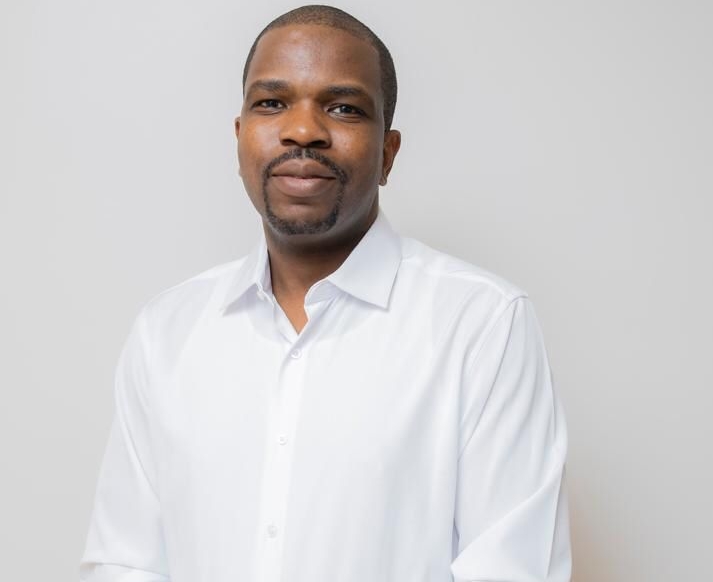Copyright modernghana

When President John Dramani Mahama was sworn in on 7 January 2025 for a second non-consecutive term, many Ghanaians greeted his return to power with hope. He inherited a nation burdened by high debt, inflation, youth unemployment and declining trust in institutions. Although I for one has always been skeptical about his leadership, given his poor record in government from 2012 to 2015. Yet almost a year into his tenure, serious concerns have emerged about the direction of Ghana’s democracy, the independence of its institutions, and the rule of law. From a major shake-up of the judiciary to the withdrawal of prosecutions in high-profile corruption cases, the nation appears to be encountering a worrying tilt away from accountability and checks and balances. JUDICIARY UNDER PRESSURE: THE SUSPENSION AND REMOVAL OF THE CHIEF JUSTICE One of the most striking developments has been the suspension in April 2025 and eventual dismissal in September 2025 of the Chief Justice Gertrude Araba Esaaba Sackey Torkornoo, head of Ghana’s Judiciary and the Supreme Court. The unfolding of this case raises serious questions about the separation of powers and transparency in Ghana’s judicial system. On 22 April 2025, President Mahama announced the immediate suspension of the Chief Justice, citing “three formal petitions” and a determination of a prima facie case. No details of the petitions were publicly disclosed. The opposition New Patriotic Party (NPP) minority caucus described the move as a “judicial coup” and a threat to judicial independence. On 1 September 2025, the Presidency announced that after a five-member investigatory committee report, the Chief Justice was removed with immediate effect. The opacity of the process, especially the non-publication of the petitions, the absence of detailed charges and the speed of the action, has alarmed right thinking Ghanaians, civil society and legal professionals. The constitution (Article 146) allows removal of superior court judges, but the public’s confidence depends on transparency, fair process, and institutional safeguards. The Chief Justice’s removal, especially so soon after assuming office, risks undermining the judiciary’s perceived independence. DROPPED OR WITHDRAWN HIGH-PROFILE CASES: A “CLEARING AGENT” GOVERNMENT? Another worrying pattern has been the withdrawal of major prosecutorial cases involving powerful individuals, many linked to the President’s party or its networks, which raises questions of selective justice or politically-motivated immunity. The trial of former Ghana Cocoa Board (COCOBOD) CEO Dr Stephen Opuni and businessman Seidu Agongo on 24 charges of causing GH¢271 million loss was abandoned by the state. Former Deputy Governor of the Bank of Ghana Dr Johnson Pandit Asiama, accused of fraudulent breach of trust, money-laundering and other charges, saw all charges withdrawn. To top it off, the same man has now been appointed as the substantive Governor of the Bank of Ghana. The case against former Works & Housing Minister Collins Dauda and others regarding the US$200 million Saglemi Affordable Housing Project, which was previously pursued under the former government was dropped. Such withdrawals raise legitimate concerns: Are these justice decisions or political pardons disguised as prosecutorial discretion? The optics are troubling: it appears that many cases formerly high up on the anti-corruption agenda have been quietly closed when past allies or party-members are involved. A BROADER TILT: WEAKENING OF CHECKS AND BALANCES? Beyond these headline items, other developments suggest a broader drift: The government’s current posture on the reintroduced anti-LGBTQ+ bill exposes a striking case of political hypocrisy. While in opposition, leading figures of the current administration, including President Mahama himself, fiercely criticised the former government for lacking the political will to sign the bill into law. Now, with full control of the executive and a cooperative legislature, that same sense of urgency has disappeared. Both the Majority Leader and the Speaker of Parliament have grown noticeably silent on the matter, while Hon. Samuel Nartey George, the bill’s chief sponsor, appears to have withdrawn from his once-defiant stance. The President also seems more interested in playing political games with the bill than showing decisive leadership. What was once presented as a moral crusade has now become a tool for political convenience. In light of the judiciary shake-up and case-withdrawals, well-meaning Ghanaians are increasingly alert that governance may shift from transparent accountability towards executive dominance. Under the current administration led by President John Dramani Mahama and the National Democratic Congress (NDC), Ghana appears to be sliding into a period of institutional fragility and democratic uncertainty. The signs of decline are clear and troubling. Judicial independence has been compromised, major corruption prosecutions have been abruptly discontinued, and key oversight bodies have grown increasingly silent in the face of executive dominance. The rule of law, once regarded as a hallmark of Ghana’s democratic identity, now seems subservient to political convenience. These developments have far-reaching implications for the nation’s growth and stability. Investor confidence has waned as businesses begin to question whether Ghana still offers a predictable and fair environment for commerce. When the courts and regulatory institutions are seen as extensions of political authority rather than independent arbiters, it becomes difficult to attract long-term investment or sustain development initiatives. Technical and vocational education, a sector meant to empower the next generation with employable skills, has also begun to feel the strain of political inconsistency and mismanagement. Vocational and technical institutions thrive only under a system guided by fairness, continuity, and meritocracy—values that are slowly eroding under the current regime. The government’s approach to governance increasingly feels more like political theatre than genuine public service. Even its most publicised initiatives, such as the so-called “24-Hour Economy,” have turned out to be little more than slogans without substance. Nearly a year after the concept was unveiled, there are no clear policy frameworks, institutional reforms, or budgetary commitments to make it a reality. What was presented as an innovative idea to stimulate growth and employment now looks like a populist soundbite designed to win votes rather than transform the economy. Meanwhile, sectors that should be driving inclusive growth—such as education, manufacturing, and agriculture—have been neglected or subjected to political patronage. In sharp contrast, the New Patriotic Party (NPP) administration under former President Nana Addo Dankwa Akufo-Addo and Dr Mahamudu Bawumia demonstrated what purposeful and visionary governance can achieve. The introduction of the Free Senior High School policy stands as one of the most transformative educational reforms in Ghana’s post-independence history, providing access to education for millions of young Ghanaians who would otherwise have been left behind. This single policy did not only expand access but also created a fairer society by bridging the gap between the privileged and the poor. Beyond education, the NPP showed exemplary leadership during the COVID-19 pandemic. At a time when many African nations struggled to balance health and economic stability, Ghana’s response was hailed globally for its decisiveness, transparency, and compassion. The government’s swift intervention saved countless lives, preserved livelihoods, and maintained economic resilience in an era of global uncertainty. The contrast between the two administrations could not be starker. The Akufo-Addo and Bawumia era was characterised by a clear commitment to institutional reform, digital innovation, and the empowerment of citizens through social interventions such as Planting for Food and Jobs, One District One Factory, and the National Entrepreneurship and Innovation Programme. These initiatives were not mere campaign promises but tangible policies that reshaped communities and provided sustainable opportunities. The NPP government worked to enhance the autonomy of state institutions and prioritised transparency, even when confronted with challenges. Under the NDC, however, there is growing concern that state institutions are being repurposed to serve partisan ends. The removal of the Chief Justice, the silence surrounding key corruption cases, and the politicisation of governance processes reflect a worrying pattern of executive overreach. The administration appears more invested in consolidating political control than in solving the structural problems facing Ghanaians. Inflation remains high, public debt continues to rise, and unemployment, particularly among the youth, has reached critical levels. Equally disheartening is the government’s shifting stance on moral and legislative issues such as the anti-LGBTQ+ bill. While in opposition, the NDC accused the previous government of lacking the courage to pass the bill into law. Yet now, both the Majority Leader and the Speaker of Parliament, as well as Hon. Samuel Nartey George—the bill’s own sponsor—appear disinterested, and the President himself has chosen to remain silent. Rather than showing leadership, the government seems to be using the bill as a political bargaining chip, exposing the hypocrisy of those who once positioned themselves as defenders of Ghanaian values. As the country navigates this uncertain political and economic landscape, one thing remains clear: Ghana’s democratic resilience and economic progress depend on principled leadership, not political expediency. The legacy of the NPP—defined by bold reforms, institutional respect, and policies that empowered ordinary citizens—offers a benchmark for what good governance should look like. The current administration would do well to remember that slogans and political manoeuvres cannot substitute for real leadership. Ghana’s development requires the courage to act with integrity, the discipline to strengthen institutions, and the humility to serve without self-interest. Until such leadership returns, the nation’s promise will remain unfulfilled, and the trust of its citizens increasingly fragile.



